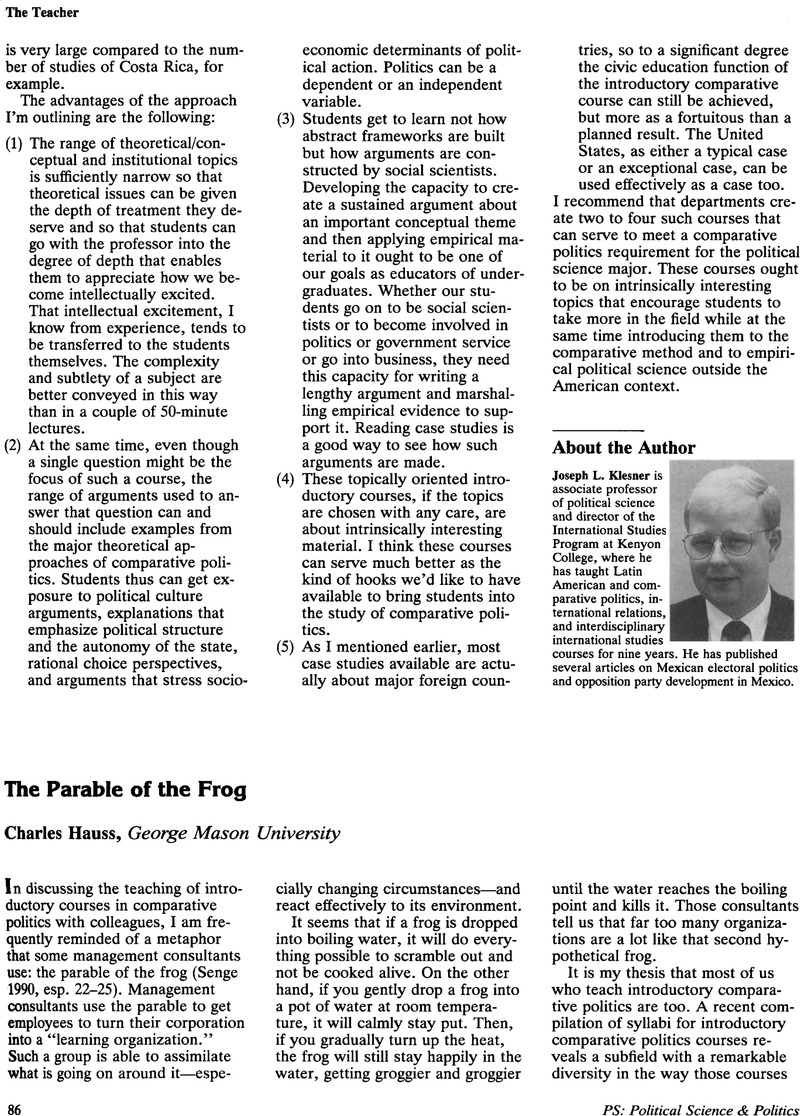Crossref Citations
This article has been cited by the following publications. This list is generated based on data provided by Crossref.
Brooks, D. Christopher
2005.
Learning Tolerance: The Impact of Comparative Politics Courses on Levels of Cultural Sensitivity.
Journal of Political Science Education,
Vol. 1,
Issue. 2,
p.
221.



